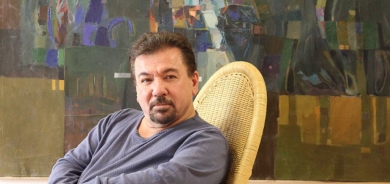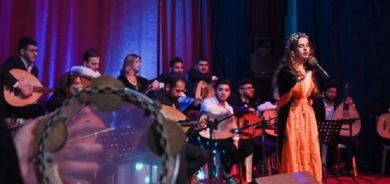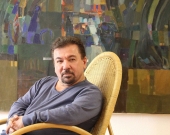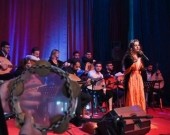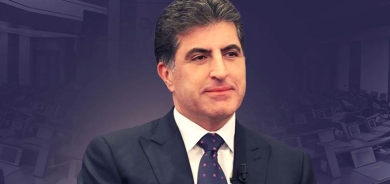African-American poet, activist Maya Angelou dies at 86

Angelou’s death was confirmed in a statement issued by Wake Forest University in Winston-Salem, North Carolina, where she had served as a professor of American Studies since 1982.
"Listen to yourself and in that quietude you might hear the voice of God," she wrote on May 23, her most recent post on her @DrMayaAngelou Twitter account.
Angelou was born Marguerite Johnson in St. Louis and raised in Stamps, Arkansas, and San Francisco, moving back and forth between her parents and her grandmother. She learned by reading and listening, and was smart and outspoken: she was packed off by her family to live in California after talking back to a white store clerk in Arkansas – a dangerously subversive act at the time.
“I started reading, really reading, at about 7 ½, because a woman in my town took me to the library, a black school library. ... And I read every book, even if I didn’t understand it,” she told AP.
At the age of 7 she was raped by her mother’s boyfriend. She spoke out and he was arrested, tried and convicted. Upon his release from prison he was murdered, possibly by her family members, instilling in the still-young Angelou an enormous sense of responsibility for this act of retribution. She did not speak for five years.
"When I heard about his murder, I thought my voice had killed a man and so it wasn't safe to speak,” she has said. "After a while, I no longer knew why I didn't speak, I simply didn't speak."
By the age of 9 Angelou had started writing poetry and she was a single mother by 17. In her early 20s she danced at a strip joint, then ran a brothel, married (Enistasious Tosh Angelos, her first of three husbands) and then divorced.
By her mid-20s, she was performing at the Purple Onion in San Francisco, where she shared billing with another future star, comedienne Phyllis Diller. She also spent a few days with jazz star Billie Holiday, who was astute enough to tell her: “You’re going to be famous. But it won’t be for singing.”
She broke out as an author in 1970 with “I Know Why the Caged Bird Sings”, which became standard (and occasionally censored) reading, and was the first of a multi-part autobiography that continued throughout the decades.
The book is a perennial on the American Library Association’s list of works but its passages about her rape and teen pregnancy often draw complaints from parents and educators, a fact that surprised Angelou.
“I thought that it was a mild book. There’s no profanity,” Angelou told the AP. “It speaks about surviving, and it really doesn’t make ogres of many people. I was shocked to find there were people who really wanted it banned, and I still believe people who are against the book have never read the book.”
Actress, director, activist
After renaming herself Maya Angelou for the stage (“Maya” was a childhood nickname), she toured in “Porgy and Bess” and Jean Genet’s “The Blacks” and danced with Alvin Ailey. She worked as a coordinator for the civil rights group Southern Christian Leadership Council, and lived for years in Egypt and Ghana, where she met Malcolm X and remained close to him until his assassination in 1965.
Three years later, she was helping Martin Luther King organise the Poor People’s March in Memphis, Tennessee, where the civil rights leader was slain on Angelou’s 40th birthday.
“Every year, on that day, Coretta and I would send each other flowers,” Angelou said of King’s widow, Coretta Scott King, who died in 2006.
In 1993, she caused a sensation reading her cautiously hopeful “On the Pulse of the Morning” at former president Bill Clinton’s first inauguration. Her confident performance openly delighted Clinton and made the poem a best-seller, if not a critical favourite. For former president George W. Bush she read another poem, “Amazing Peace”, at the 2005 Christmas tree lighting ceremony at the White House.
She remained close enough to the Clintons that in 2008 she supported Hillary Rodham Clinton’s candidacy over the ultimately successful run of the country’s first African-American president, Barack Obama.
But a few days before Obama’s inauguration, she was overjoyed. She told the Arkansas Democrat-Gazette she would be watching it on television “somewhere between crying and praying and being grateful and laughing when I see faces I know”.
Angelou became a mentor to media powerhouse Oprah Winfrey, whom she befriended when Winfrey was still a local television reporter, and often appeared on her friend’s talk show program. She mastered several languages and published not just poetry but advice books, cookbooks and even children’s stories.
Angelou was little known outside the theatrical community until “I Know Why the Caged Bird Sings” was published, which might not have happened if celebrated African-American author James Baldwin hadn’t persuaded Angelou to attend a party at Pulitzer Prize-winning cartoonist Jules Feiffer’s house. Feiffer was so taken by Angelou that he mentioned her to Random House editor Bob Loomis, who persuaded her to write a book.
Angelou also appeared on several TV programs, notably the groundbreaking 1977 miniseries “Roots”, for which she received an Emmy nomination. She was also nominated for a Tony Award in 1973 for her appearance in the play “Look Away”.
She directed the film “Down in the Delta”, about a drug-addicted woman who returns to the home of her ancestors in the Mississippi Delta. She won three Grammys for her spoken-word albums and in 2013 received an honorary National Book Award for her contributions to the literary community.
(FRANCE 24 with AP and AFP)



